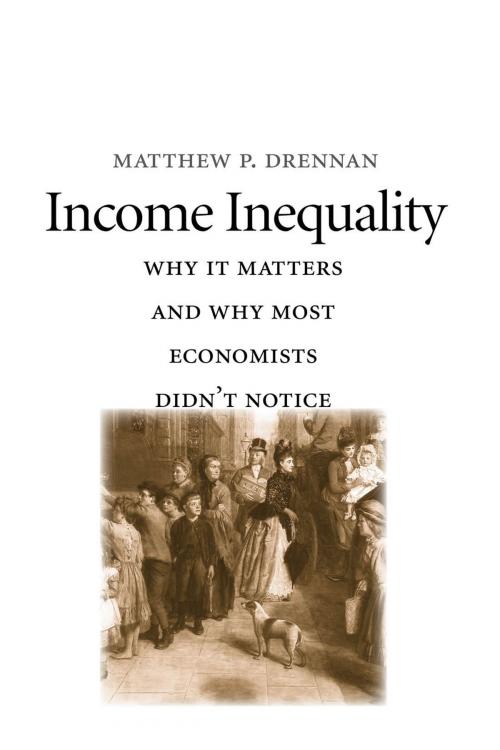Income Inequality
Why It Matters and Why Most Economists Didn't Notice
Business & Finance, Economics, Economic Conditions, Theory of Economics, Nonfiction, Social & Cultural Studies, Political Science, Politics, Economic Policy| Author: | Matthew P. Drennan | ISBN: | 9780300216349 |
| Publisher: | Yale University Press | Publication: | November 24, 2015 |
| Imprint: | Yale University Press | Language: | English |
| Author: | Matthew P. Drennan |
| ISBN: | 9780300216349 |
| Publisher: | Yale University Press |
| Publication: | November 24, 2015 |
| Imprint: | Yale University Press |
| Language: | English |
Prevailing economic theory attributes the 2008 crash and the Great Recession that followed to low interest rates, relaxed borrowing standards, and the housing price bubble. After careful analyses of statistical evidence, however, Matthew Drennan discovered that income inequality was the decisive factor behind the crisis. Pressured to keep up consumption in the face of flat or declining incomes, Americans leveraged their home equity to take on excessive debt. The collapse of the housing market left this debt unsupported, causing a domino effect throughout the economy. Drennan also found startling similarities in consumer behavior in the years leading to both the Great Depression and the Great Recession. Offering an economic explanation of a phenomenon described by prominent observers including Thomas Piketty, Jacob Hacker, Robert Kuttner, Paul Krugman, and Joseph Stiglitz, Drennan’s evenhanded analysis disproves dominant theories of consumption and draws much-needed attention to the persisting problem of income inequality.
Prevailing economic theory attributes the 2008 crash and the Great Recession that followed to low interest rates, relaxed borrowing standards, and the housing price bubble. After careful analyses of statistical evidence, however, Matthew Drennan discovered that income inequality was the decisive factor behind the crisis. Pressured to keep up consumption in the face of flat or declining incomes, Americans leveraged their home equity to take on excessive debt. The collapse of the housing market left this debt unsupported, causing a domino effect throughout the economy. Drennan also found startling similarities in consumer behavior in the years leading to both the Great Depression and the Great Recession. Offering an economic explanation of a phenomenon described by prominent observers including Thomas Piketty, Jacob Hacker, Robert Kuttner, Paul Krugman, and Joseph Stiglitz, Drennan’s evenhanded analysis disproves dominant theories of consumption and draws much-needed attention to the persisting problem of income inequality.















